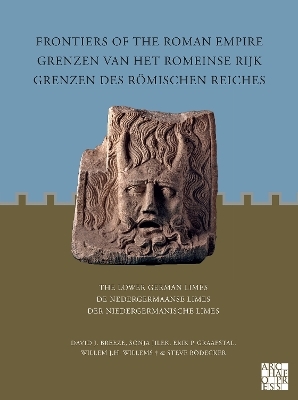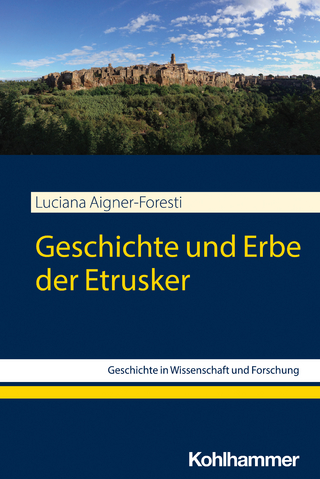
Frontiers of the Roman Empire: The Lower German Limes
Archaeopress Archaeology (Verlag)
978-1-80327-142-2 (ISBN)
The frontiers of the Roman empire together form the largest surviving monument of one of the world’s greatest states. They stretch for some 7,500 km through 20 countries which encircle the Mediterranean Sea. The remains of these frontiers have been studied by visitors and later by archaeologists for several centuries. Many of the inscriptions and sculpture, weapons, pottery and artefacts created and used by the soldiers and civilians who lived on the frontier can be seen in museums. Equally evocative of the lost might of Rome are the physical remains of the frontiers themselves. The aim of this series of booklets is not only to inform the interested visitor about the history of the frontiers but to act as a guidebook as well.
The frontier in Lower Germany was one of the earliest to be created; surviving into the early 5th century, it illustrates the whole range of Roman military installations. In the Rhine delta, the watery nature of the landscape has ensured incredible survivals in the form of organic remains including ships. Upstream are great military bases created for the army poised to invade Germany, supported by forts and fortlets, all modified over time.
Professor David. J. Breeze is Chairman of the International Congress of Roman Frontier Studies and has published extensively on Roman frontiers. ; Dr Sonja Jilek has acted since 2005 as coordinator of three multinational EU projects regarding the development of the UNESCO "Frontiers of the Roman Empire" World Heritage Site. ; Erik P. Graafstal M.A. is municipal archaeologist of Utrecht and research associate at Leiden University with a specialization in Roman frontier research. ; Professor Dr Willem J.H. Willems held the Chair for provincial-Roman archaeology at Leiden University and was specialized in regional research of Roman frontier areas. ; Steve Bödecker M.A. is the Limes coordinator for North Rhine-Westphalia and member of the team preparing the world heritage application for the Lower German Limes.
Frontiers of the Roman Empire ;
Common cultural heritage of the Roman Empire ;
The Roman Empire ;
Frontiers and trade ;
The “Frontiers of the Roman Empire” World Heritage Site ;
The definition of a World Heritage Site ;
The task ahead ;
History and extent of frontiers ;
Rome´s foreign policy ;
The location of frontiers ;
The army and frontiers ;
The purpose of frontiers ;
Soldiers and civilians ;
Military administration ;
Research on Roman frontiers ;
Inscriptions and documents ;
Survey and excavation ;
Aerial survey and remote sensing ;
Protection and presentation of frontiers ;
Future perspectives ;
The Lower German Limes ;
The river frontier that saw it all ;
The setting of the Lower Rhine limes ;
Landscape ;
Historical background and development ;
The classic frontier system (late 1st – late 3rd century) ;
The Roman army ;
Accommodation ;
The Lower German deployment ;
Outstanding values of the Lower German limes ;
Chronological span ;
The development of military architecture ;
A complete system ;
A ‘military-industrial complex’ ;
Riverfronts and harbours ;
Water management and shipping infrastructure ;
Spectacular finds: ships and votive offerings ;
The true treasure: sewage and waste ;
Information stored in leather and timber ;
The sealing properties of later townscapes ;
Archaeological research and heritage management ;
What to see? ;
Museums and permanent exhibitions ;
Visible remains and modern references ;
Further reading ;
Illustration acknowledgements
| Erscheinungsdatum | 04.01.2022 |
|---|---|
| Reihe/Serie | Frontiers of the Roman Empire |
| Zusatzinfo | Illustrated in full colour throughout |
| Verlagsort | Oxford |
| Sprache | Dutch; Flemish; englisch; deutsch |
| Maße | 185 x 248 mm |
| Gewicht | 407 g |
| Themenwelt | Geisteswissenschaften ► Archäologie |
| Geschichte ► Allgemeine Geschichte ► Altertum / Antike | |
| ISBN-10 | 1-80327-142-6 / 1803271426 |
| ISBN-13 | 978-1-80327-142-2 / 9781803271422 |
| Zustand | Neuware |
| Informationen gemäß Produktsicherheitsverordnung (GPSR) | |
| Haben Sie eine Frage zum Produkt? |
aus dem Bereich


